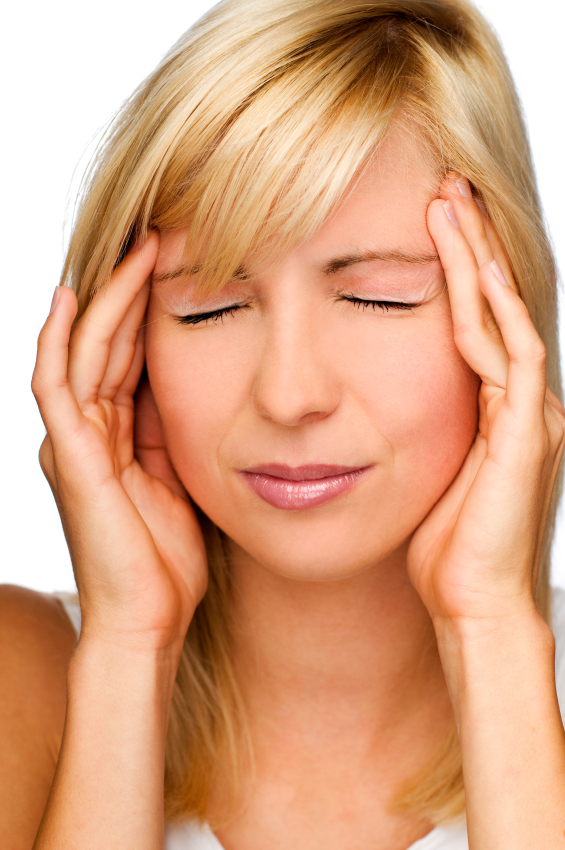TMJ Specialist Chattanooga & Dentist Ooltewah

Your smile shouldn’t make you wince—let Tedford Family Dentistry in Ooltewah stop the pain of TMJ or TMD and get your jaw back in working order.
There are many problems that can occur when your temporomandibular joint (TMJ), becomes swollen, damaged, or misaligned. Since some types of disorders (TMD) can lead to more serious conditions, early detection and treatment are important.
Ask yourself the following questions:- Do you experience jaw soreness or stiffness?
- Do you experience frequent headaches or neck aches?
- Does the pain worsen when you clench your teeth?
- Does your jaw make a popping or clicking sound?
- Does your jaw grate, catch, or lock when you open and close your mouth?
- Do you experience high levels of pain when you open your mouth, eat, or yawn?
- Do you have arthritis?
- Do your teeth meet differently from time to time?
- Do your teeth feel overly sensitive or loose?
- Does increased stress induce clenching and jaw pain?
- Have you previously injured your neck, head, or jaw?
If you answered “yes” to many of these questions, it is likely that you have TMJ or TMD.
WHAT ARE TMJ/TMD DISORDERS?
TMJ stands for temporomandibular joint, which is the name for each joint (right and left) that connects your jaw to your skull. These disorders occur in your complex, temporomandibular joint.
WHAT CAUSES TMJ/TMD DISORDERS?
The temporomandibular joint can become inflamed, injured, or sore just like any other joint in the body. Many factors can contribute to a TMJ/TMD disorder diagnosis, but some of the most common include genetics, teeth grinding, arthritis, injuries to the jaw, and even elevated stress in some cases.
WHAT ARE SYMPTOMS OF TMJ/TMD DISORDERS?
Symptoms include jaw pain, clicking, popping or grating sounds, locked jaw, misaligned bite, or difficulty opening your mouth widely. You might also experience pain in the neck, shoulders, mouth, and even your lower back. Other symptoms can include earaches, headaches, and migraines.
HOW DO TMJ/TMD DISORDERS OCCUR?
TMJ and TMD can develop for a variety reasons. You might clench or grind your teeth during sleep or tighten your jaw muscles during higher levels of stress. It is possible that you may have a damaged joint due to injury or disease. Arthritis can also stretch or tear the muscle ligaments, or damage the joint directly. Because the disc is made of cartilage and functions as the cushion of the jaw joint, it can sometimes dislocate out of position.
HOW ARE TMJ/TMD DISORDERS TREATED?
While no one remedy can completely resolve TMJ or TMD, there are fortunately a variety of at-home treatments that can make smiling comfortable again so you can have a healthier and more comfortable jaw. Mouth guards can help to realign your jaw muscles to prevent excessive teeth grinding. Other treatment options may include physical therapy, prescription medications, and facial relaxation techniques. Self-care treatments can often be effective. These may include:
- Resting your jaw
- Keeping your teeth apart when you are not eating or drinking
- Eating soft foods
- Applying ice and heat
- Managing stress levels
- Exercising your jaw
- Practicing good posture
- Wearing a dental night guard during sleep
Surgical options and open joint repair restructuring are only needed in extreme cases. Most oral and maxillofacial surgeons will only consider TMJ or TMD surgery if the jaw will not open, is dislocated, or has severe degeneration. After a comprehensive assessment of your TMJ Disorder, we can repair the damage by readjusting your bite, reshaping damaged teeth, or replacing missing teeth.
CONTACT YOUR TMJ SPECIALIST CHATTANOOGA & OOLTEWAH FOR TMD DENTAL CARE
To learn more about TMJ or TMD, contact your TMJ specialist in Chattanooga office located in Chattanooga and Ooltewah TN or leave us a message! We also serve Collegedale TN, Chattanooga TN, and Cleveland TN communities.
